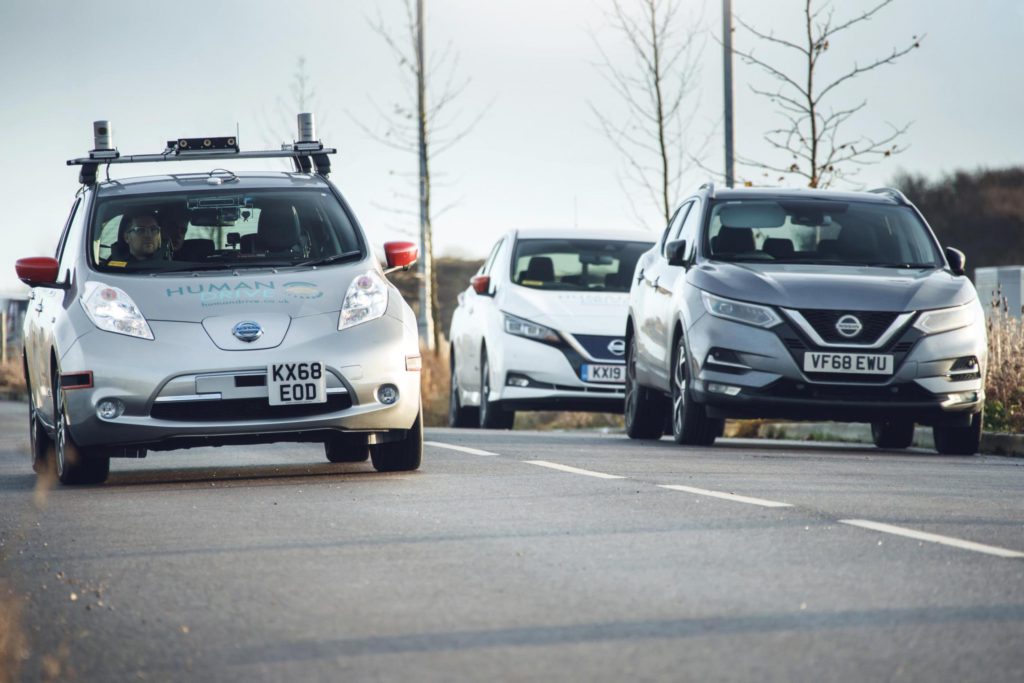HumanDrive project culminates in longest UK autonomous drive
07 February 2020

7 February 2020
HumanDrive, a UK Government-backed consortium led by Nissan, has completed the longest autonomous drive in the country’s history.
The self-navigated journey took place on public roads and saw a Nissan Leaf complete 230 miles from Cranfield in Bedfordshire to Sunderland, taking in complex roundabouts and high-speed country lanes with no road markings, kerbs or white lines to follow.
The ′Grand Drive’ test vehicles featured technology such as GPS, radar, LIDAR and camera technologies that build up a perception of the world around it. Using this perceived world, the system can make decisions about how to navigate roads and obstacles it encounters on a journey.
Safety first
The car had two engineers on board who were monitoring the vehicle’s actions at all times. The journey was conducted with the knowledge and support of all relevant highway authorities, Nissan said.
One of the key aspects of the project was to develop an advanced, autonomous-vehicle control system. Ensuring that future advanced autonomous-drive systems create a comfortable and familiar experience for customers is important as we move towards a more connected and autonomous future, the group said.
The 230-mile journey saw the lessons learned put into practice in a range of driving scenarios to negotiate country lanes with no or minimal road markings, junctions, roundabouts and motorways. The autonomous technology activated along the route to change lanes, merge and stop and start when necessary.
Market leader
′Safely completing the longest autonomous drive in Britain is an incredible achievement for Nissan and the HumanDrive consortium, and a huge step towards the rollout of driverless cars on UK streets,’ said Business Minister, Nadhim Zahawi.
′This project is a shining example of how the automotive industry, working with government, can drive forward technology to benefit people’s mobility – while helping to slash carbon emissions.’
The second part of the HumanDrive project looked at how machine-learning artificial-intelligence (AI) technologies could enhance the user experience and passenger comfort of connected and autonomous vehicles. Pilot vehicles tested successfully on private tracks, also incorporate AI systems developed by fellow consortium member Hitachi Europe Ltd, which enable real-time machine learning. By building a dataset of previously encountered traffic scenarios and solutions, it can use this ′learned experience’ to handle similar scenarios in future and plot a safe route around an obstacle.
These technologies were subjected to a robust testing process and developed using a range of facilities, including simulation, hardware in the loop and private test tracks.
The UK Government jointly funds HumanDrive through the Centre for Connected and Autonomous Vehicles (CCAV), along with Innovate UK and nine other consortium partners. The joint-funding package for the project totalled £13.5 million.